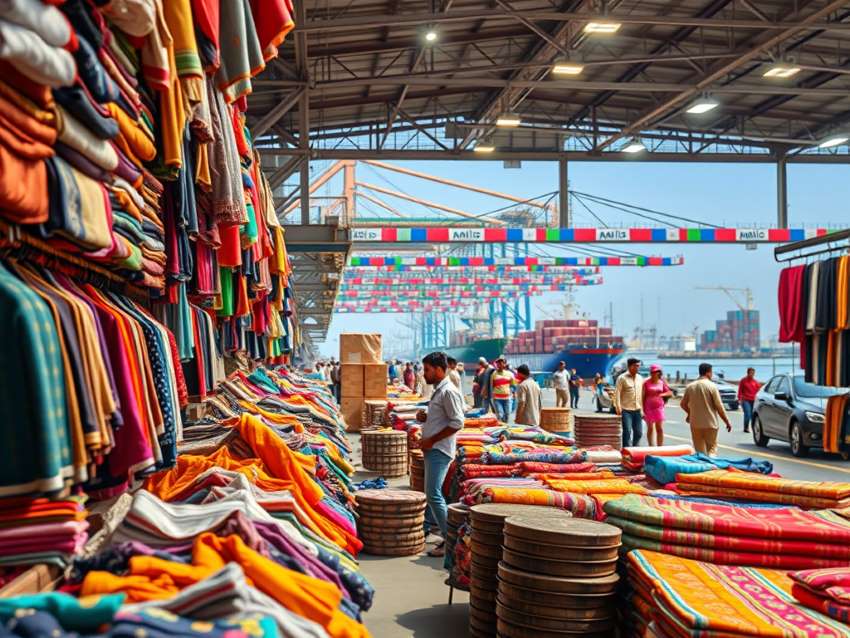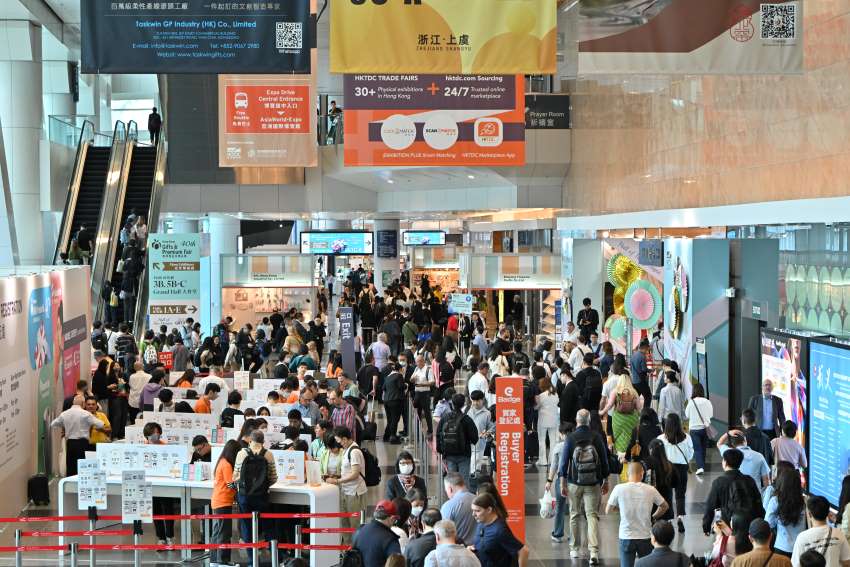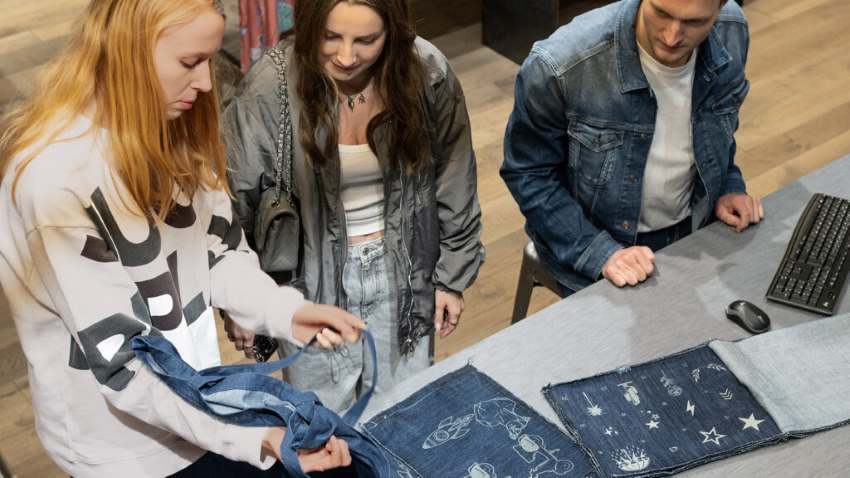FW
Kraig Biocraft Laboratories, Inc.strides forward in its quest for cutting-edge biomaterials as it commences spring production trials for its latest breakthrough, the BAM-1 hybrid. The trials, crucial to the Company's trajectory, are proceeding according to plan, marking a significant milestone in its production roadmap.
CEO Kim Thompson's direct oversight in Asia underscores the strategic importance of the BAM-1 parental strains' performance evaluation. Notably, meticulous health screenings reveal an unprecedented vigor and vitality among the silkworm colonies, attributed to the enhanced genetics and resilience of the BAM-1 strains.
The absence of disease signals a triumph for Kraig Labs, a testament to its commitment to excellence. Nirmal Kumar's contributions in knowledge transfer and rearing technology bolster this success, amplifying prospects for a record-breaking year in spider silk production.
Thompson's optimism resonates as he underscores the pivotal role of these trials in shaping the Company's future. With Kumar's on-ground support, Kraig Labs is poised for a breakthrough, aligning with its vision for commercial-scale spider silk production. As the industry eagerly awaits further developments, Kraig Biocraft Laboratories stands at the forefront of innovation, poised to redefine biomaterials as we know them.
YKK Corporation is embarking on a significant shift towards eco-friendly practices by introducing low-carbon aluminum into its production of zippers. This move marks a strategic step towards fulfilling its Sustainability Vision 2050, aimed at achieving climate neutrality.
Collaborating with Sumitomo Electric Industries and Sumitomo Electric Toyama, YKK has committed to purchasing alloy wires utilizing low-carbon aluminum, gradually transitioning from conventional materials.
Aligned with its ambitious sustainability goals, YKK aims to reduce greenhouse gas emissions across its supply chain. By adopting low-carbon aluminum for zipper production, the company endeavors to slash Scope 1, 2, and 3 emissions by significant margins by 2030. This initiative underscores YKK's dedication to mitigating climate change and fostering a more sustainable society.
Terry Tsukumo, Vice President of the Product Strategy Division at YKK Corporation, emphasizes the company's ongoing commitment to environmental responsibility. Tsukumo highlights YKK's multi-faceted approach, which includes integrating recycled and plant-based materials alongside the introduction of low-carbon aluminum.
This concerted effort reflects YKK's determination to minimize its environmental footprint while collaborating with partners to drive sustainability throughout the supply chain.
Nitin Spinners Ltd has clinched prestigious awards at the Cotton-Textiles Export Promotion Council (Texprocil) for its exemplary performance in export and employment generation. The company secured the following accolades for the years 2021-22 and 2022-23:
In 2021-22, Nitin Spinners received the Silver Trophy for achieving the second-highest exports of Cotton Yarn of Counts 50s and below in Category III.
In 2022-23, the company marked a significant achievement by bagging the Gold Trophy for the highest exports of Cotton Yarn of Counts 50s and below in Category III. Additionally, they received a Gold Plaque for leading in exports of Cotton Yarn of Counts 51s and above in Category I, and another Gold Trophy for top-notch performance in employment generation.
This recognition underscores Nitin Spinners' commitment to excellence and its pivotal role in bolstering India's textile export sector. The news buoyed investor sentiment, reflecting positively on the company's stock performance. Nitin Spinners Limited's shares closed marginally lower at Rs 351.80 on the Bombay Stock Exchange (BSE) following the announcement, after trading 11770 shares across 672 transactions during the day.
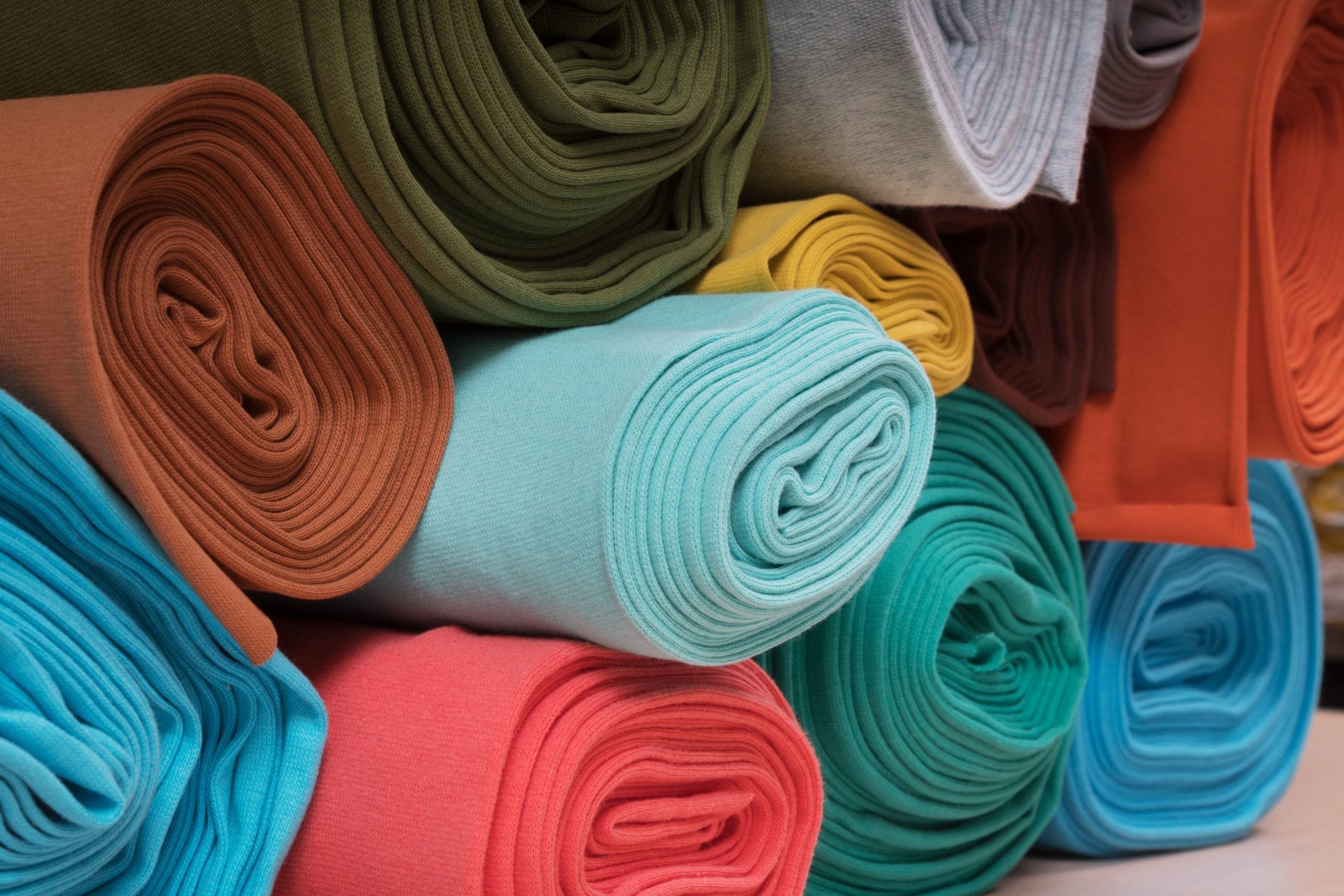
The fashion industry is notorious for waste. Unsold garments and excess fabric often end up in landfills. Fabric stock services are emerging as a potential solution, offering a platform for manufacturers and designers to buy and sell leftover materials. But is this a new trend poised to dominate, or a niche market with limitations?
Growth and potential
Data suggests a growing market for fabric stock services. A report by Textile Exchange suggests the global market for recycled textiles is expected to reach $21.8 billion by 2025. Fabric stock services offer a way to tap into this trend by giving pre-existing fabrics a second life.
Studies show, a growing interest in fabric stock services. Indeed, concrete sales figures are difficult to obtain due to the industry's fragmented nature, anecdotal evidence and the increasing presence of online platforms dedicated to fabric stock point towards a positive trend. Companies like Fabric Stock Exchange report a constant influx of new fabrics, indicating a growing pool of excess inventory.
A change driver
Direct comparisons between stock service sales and traditional manufacturing are challenging due to different business models. However, the rise of sustainability concerns and the ever-changing fashion landscape make stock services an attractive option.
Stock services offer a sustainable solution by giving these materials a second life. "We are diverting tons of fabric from landfills," says Michael Goldberg, CEO of Fabcycle, a prominent fabric stock service company. Veja, a sustainable sneaker brand, is a prime example of how stock services can work. Veja utilizes fabric stock services to source deadstock materials for their footwear. This allows them to create unique designs while minimizing environmental impact
As Sarah Jones, a fashion sustainability consultant points out, "Fabric stock services offer a win-win situation. Manufacturers can recoup costs from leftover materials, while designers gain access to unique fabrics at potentially lower prices, all while promoting sustainability." The push for sustainable practices and rising consumer demand for eco-conscious clothing are key drivers of this trend.
So what’s pushing this change? Sustainability is top reason as it reduces textile waste by giving leftover materials a second life. Cost-effectiveness is another driver as manufacturers can access high-quality fabrics at discounted prices. Reduced lead times is another lure, as stock services offer readily available fabrics, allowing for faster production cycles.
Currently, stock services primarily cater to small and mid-sized businesses, who benefit from access to premium materials without minimum order quantities. Also, sustainable designers source eco-friendly materials for their collections. The variety of fabrics available through stock services is vast. From natural fibers like cotton, linen, and wool to synthetic fibers like polyester and nylon and blends.
The future of fabric stock services
The future of fabric stock services holds a lot of promise. As sustainability concerns escalate and the fashion industry seeks more agile solutions, these services are likely to see continued growth. Additionally, advancements in online platforms and data analysis could further streamline the process, making it even more accessible.
However, challenges remain. Standardization and quality control across different platforms need improvement. Also, educating both manufacturers and consumers about the benefits of stock services is crucial for wider adoption. What’s more selection is limited. Stock services typically offer a broader range of colors and patterns for basic fabrics like cotton or linen. Finding specialty or high-end materials like silk or intricate lace might be challenging. Since stock relies on leftover materials, designers may have difficulty planning large-scale productions around specific fabrics
Overall, fabric stock services offer a compelling solution for a more sustainable and efficient textile industry. The traditional ‘manufacture and sell’ model will likely persist for large, mainstream fashion brands requiring consistent fabric availability. However, fabric stock services offer a complementary approach, promoting sustainability and fostering creativity within the fashion industry. As the industry evolves, these services are likely to play an increasingly important role.
Having established a firm presence in the Middle East, Dolce & Gabbana now aims to swiftly expand in the region by focusing on Saudi Arabia which has relatively lesser luxury retail spaces.
Dolce & Gabbana has significant opportunities to expand in Saudi Arabia as the luxury market there is projected to double by 2030. The brand currently operates four shops in Saudi Arabia. One of its latest ventures includes a sizable shop in Riyadh to offer a wide range of collection, including homeware and beauty products.
One of the brand's most ambitious projects includes a flagship store in the Bujairi Terrace Complex in Diriyah, Riyadh. The store will offer a comprehensive brand experience besides having an Italian-design inspired Café. It will feature an exclusive section of abayas, showcasing the brand's commitment to cultural diversity.
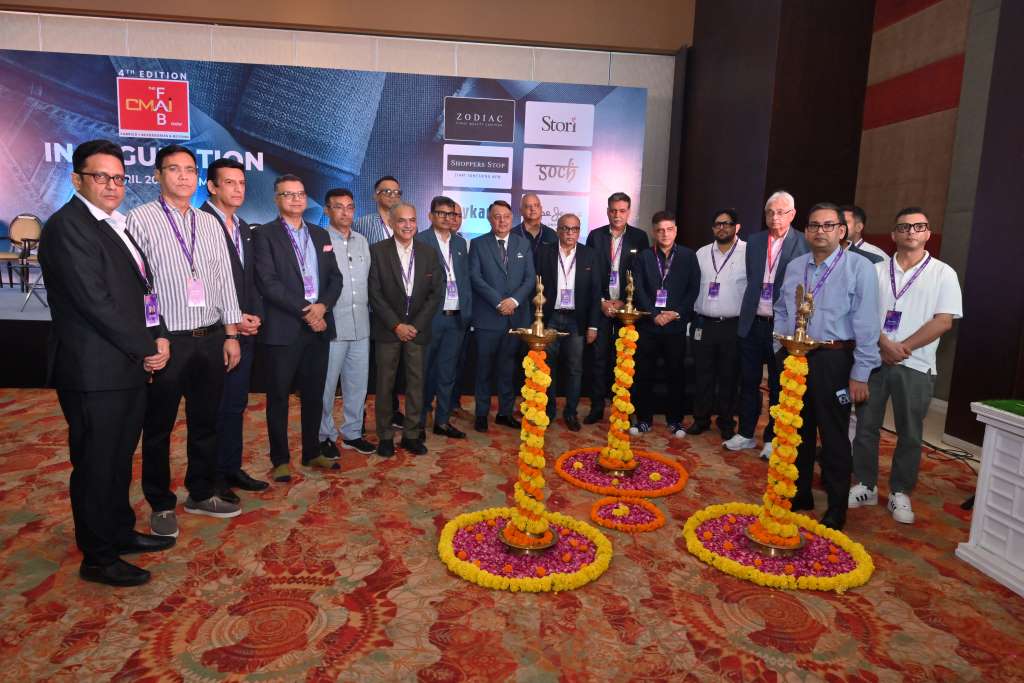
The 4th edition of the Fabrics Accessories & Beyond Show 2024 (FAB Show), hosted by the Clothing Manufacturers Association of India (CMAI), commenced with grandeur on April 15, 2024. Esteemed sourcing heads from renowned brands and retail majors, including Aditya Birla Fashion & Retail, Bestseller, Reliance Brands, Mufti, Pepe Jeans, Shoppers Stop, Soch, graced the event with their presence. The inauguration also saw the felicitation of regional trade associations such as The Southern Gujarat Chamber of Commerce & Industry and Bangalore Apparel Manufacturers Association, among others.
A premier convergence hub
Set against the backdrop of the Bombay Exhibition Centre (NESCO) in Mumbai, the FAB Show 2024, spanning from April 15 to 17, promises to be a pivotal event for the garments manufacturing supply chain. Over 200 fabric suppliers, leading accessories manufacturers, machinery suppliers, and service providers from across India converge to showcase the latest trends and innovations.
Catalyzing industry evolution
Mr Rajesh Masand, President of CMAI, expressed delight at the FAB Show's rapid ascent as the premier convergence hub for the industry. He emphasized its role in not just showcasing technological advancements but also in driving awareness about sustainability and understanding evolving consumer preferences. With over 4000 primary members of CMAI expected to attend, the event holds immense significance for shaping the future of the industry.
Driving sustainability initiatives
Amidst India's evolving textile landscape, a significant shift towards sustainability and eco-conscious practices is evident. The Sustainability Zone at the FAB Show serves as a beacon for promoting circularity and waste management innovations. Exhibitors showcase fabrics crafted from waste materials, highlighting CMAI's commitment to fostering sustainability within the garment industry.
Unparalleled networking opportunities
Naveen Sainani, Chairman of the FAB sub-committee, underscored the unmatched opportunities the FAB Show 2024 offers for industry vendors to connect with reputed buyers from India and abroad. Exhibitors present the newest fabric trends, providing brands with prime opportunities to cater to evolving consumer demands. The event also champions sustainability, reflecting CMAI's vision for a greener, more resilient world.
Showcasing regional excellence
A standout feature of the FAB Show 2024 is the Surat Pavilion, organized by the Southern Gujarat Chamber of Commerce & Industry (SGCCI). This pavilion brings together over 40 prominent fabric manufacturers from the region, including Grasim, Arvind, and Siyaram’s. Its presence reinforces the event's stature as a premier platform for the fashion and apparel industry.
Global participation
With expectations soaring high, the FAB Show 2024 anticipates a substantial turnout of more than 10,000 buyers and manufacturers from over 400 cities, along with international buyers from various countries including the USA, Bangladesh, and the UAE. This global participation underscores the event's significance on the international stage.
Dignitaries gracing the inauguration
CMAI dignitaries, including Rajesh Masand, President; Jayesh Shah, Vice-President; and Naveen Sainani, Chairman of FAB Show, among others, graced the inauguration ceremony. Their presence highlighted the collective commitment of industry leaders towards driving innovation and sustainability within the garment sector.
The FAB Show 2024 stands as not merely an exhibition but a testament to the industry's resilience, innovation, and commitment to sustainability. With a focus on fostering collaboration, driving awareness, and showcasing cutting-edge technologies, the event paves the way for a more vibrant and sustainable future for the garment industry.
Santoni plans to unveil its latest innovation – the SM8-TOP2ST at the upcoming ITM 2024 in Istanbul. This groundbreaking single jersey electronic circular knitting machine boasts 8 feeds and 2 points of selection needle-by-needle per feed, available in diameters ranging from 13 to 20 inches and in gauges 24, 26, and 28.
The pioneering mechatronic device of the machine transforms the Santoni SM8-TOP2V into the first-ever seamless knitting machine capable of producing garments with needle-by-needle/sinker-by-sinker selective terry, with full electronic selection of the sinkers. While retaining the core specifications and fabric possibilities of the TOP2V, this advancement empowers the machine to craft sculptured terry patterns with precision.
The resulting knitted tubular garments offer versatility in wear, with the option to don them conventionally with the terry on the inside, or to flaunt the terry on the outside by simply reversing them. The terry, whether nestled within or showcased outwardly, delivers both functional and aesthetic benefits.
Internally, the terry lends a cushioning effect, elevating softness, comfort, and breathability. Externally, it enhances the garment's visual appeal, adding an extra dimension to its aesthetics.
The selective terry capability opens doors to heightened value, particularly for technical garments, a glimpse of which will be showcased at ITM 2024. The accompanying images illustrate the intricate patterns achieved through precise needle positioning, underscoring the machine's prowess in creating tailored, high-performance apparel.
Maintaining consistent quality during fabric manufacturing not only ensures customer satisfaction, but also minimises waste and keeps production running smoothly. Given below are few tips to implement robust quality control (QC) measures and leverage technology for automated inspection during fabric production.
Implement Traditional QC Practices
Before diving into automation, a solid foundation of traditional QC practices is essential. Here are key elements:
• Define quality standards: Establish clear and measurable quality parameters for the fabrics including weight, thread count, color consistency, weave structure, and absence of defects like holes, tears, or uneven dyeing.
• Implement standardised testing: Implement standardised testing procedures throughout the production process. Conduct regular checks for yarn quality, tension control during the weaving process and analyse fabric post-production.
• Utilise Statistical Process Control (SPC) techniques: Utilise SPC techniques to monitor key parameters and identify any trends or deviations from set standards. This enables early detection of potential quality issues.
• Training and documentation: Train your workforce on proper inspection techniques and ensure clear documentation of all QC procedures. This fosters consistency and reduces human error.
Leverage the Power of Automation
Fabric manufactures can leverage the following technologies to enhance their QC processes:
• Machine Vision Systems: Installed with high-resolution cameras and powerful software, these systems help identify defects like weaving errors, color variations, and stains. They also analyse fabrics in real-time, enabling manufacturers to take immediate corrective action.
• Automated Measurement Systems: These automated systems can be used to measure fabric weight, thickness, and dimensions with high accuracy. This helps eliminate human error besides ensuring consistent fabric properties.
• Sensor Integration: Manufacturers can integrate sensors into their weaving/knitting machines to monitor critical parameters like yarn tension and loom speed. They can prevent defects in the machine by making adjustments using real-time data.
• Data Analytics and AI: Manufacturers can utilise data analytics platforms to analyse QC data from various stages. This helps identify recurring issues, predict potential problems, and optimise production processes for better quality control.
• Integrate QC Systems with Production Management Systems: Fabric manufacturers can integrate their automated QC systems with production management software for seamless data flow, real-time quality monitoring, and informed decision-making.
Integrate Automation with Success
Here are some additional tips for successful automation of the fabric manufacturing process
• Take baby steps: Manufacturers should begin by automating specific QC tasks first. They can gradually integrate more automation into their process as the team gains more experience.
• Evaluate cost-benefit ratio: Manufacturers should evaluate the ratio between the cost of automation and it’s the potential benefits including improved efficiency, reduced waste, and higher quality.
• Invest in training: Train workforce to operate and maintain automated QC systems. This fosters the ownership culture of ownership and reduces dependence on external support.
• Data security: Protect sensitive QC data from being breached by implementing regularity security checks.
• Use insights for QC upgradation: Manufacturers need to embrace new technologies and use data insights to regularly update their QC procedures.
Fabric manufacturers can achieve exception quality and consistency by implementing a robust QC program that incorporates well-trained manual inspections and cutting-edge automation. This not only enhances customer satisfaction but also optimises production efficiency, minimises waste, and strengthens brand reputation. Embracing automation is the future key for fabric manufacturers to maintain a competitive edge and deliver the flawless fabrics.
The NBA team is launching its inaugural brick-and-mortar storefront for Berō, its fashion label introduced in December.
Crafted by the Brooklyn Home Company, the storefront is located inside a converted 200-sq-ft concession stand within Barclays Center, echoing both the brand’s essence and the basketball team's Brooklyn heritage.
Stacey Walters, Director-Architecture, Brooklyn Home Company, elucidates, the store will evoke the ambiance of a heritage clothing brand, aligning seamlessly with the borough's ethos of quality.
Renowned for capturing Brooklyn's vibrant essence in its designs, the Brooklyn Home Company sought inspiration from the borough's iconic townhouses for the store. It boasts of wood paneling, marble counters, black limestone floors, and brass accents. Ambient lighting further adds an element of coziness to the store.
The new storefront will showcase Bero’s current line-up of apparel and accessories, featuring staples like pullover hoodies, quarter-zips, cardigans, coats, soccer jerseys, and more. It will also release a collection designed by Brooklyn Nets player Nic Claxton.
Looking ahead, the store plans to unveil an exciting collaboration between Berō, the Nets, and KidSuper in the fall. Additionally, it will launch a new apparel collection during the WNBA New York Liberty’s summer season.
World's largest fashion activism movement, Fashion Revolution is celebrating its tenth anniversary with Fashion Revolution Week 2024, being held from April 15-24, 2024.
This annual campaign brings together people globally to advocate for a cleaner, safer, fairer, and more transparent fashion industry. It is held every year in the week coinciding with April 24, the anniversary of the Rana Plaza disaster.
Over the past decade, Fashion Revolution India has promoted an accountable fashion industry through education, policy discussions, research, and support for traditional crafts. This year's theme for the event is 'How to be a Fashion Revolutionary'. On April 21, a workshop called 'Textiles Untangled at the Backyard, Adyar will be organised in partnership with Green Donut, a Paris-based non-profit,Thasneem.
Masood Rowther, Former Regional Coordinator and Spokesperson - Fashion Revolution India, explains, the workshop will simplify the complex network of the textile industry, highlighting its environmental and social impacts. Inspired by the effective pedagogy of Climate Fresk, it will use interactive cards to map the industry's journey from production to consumption.

